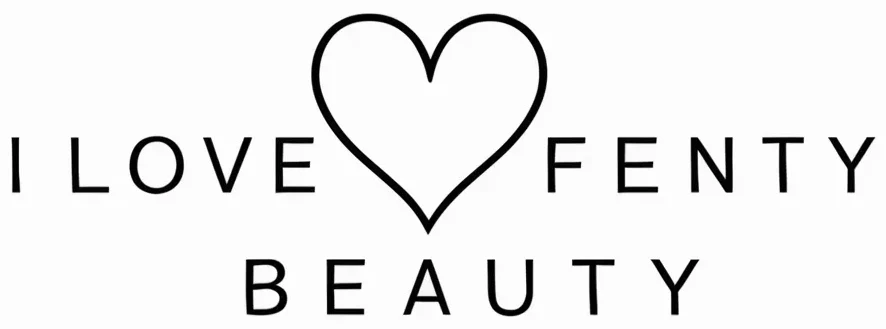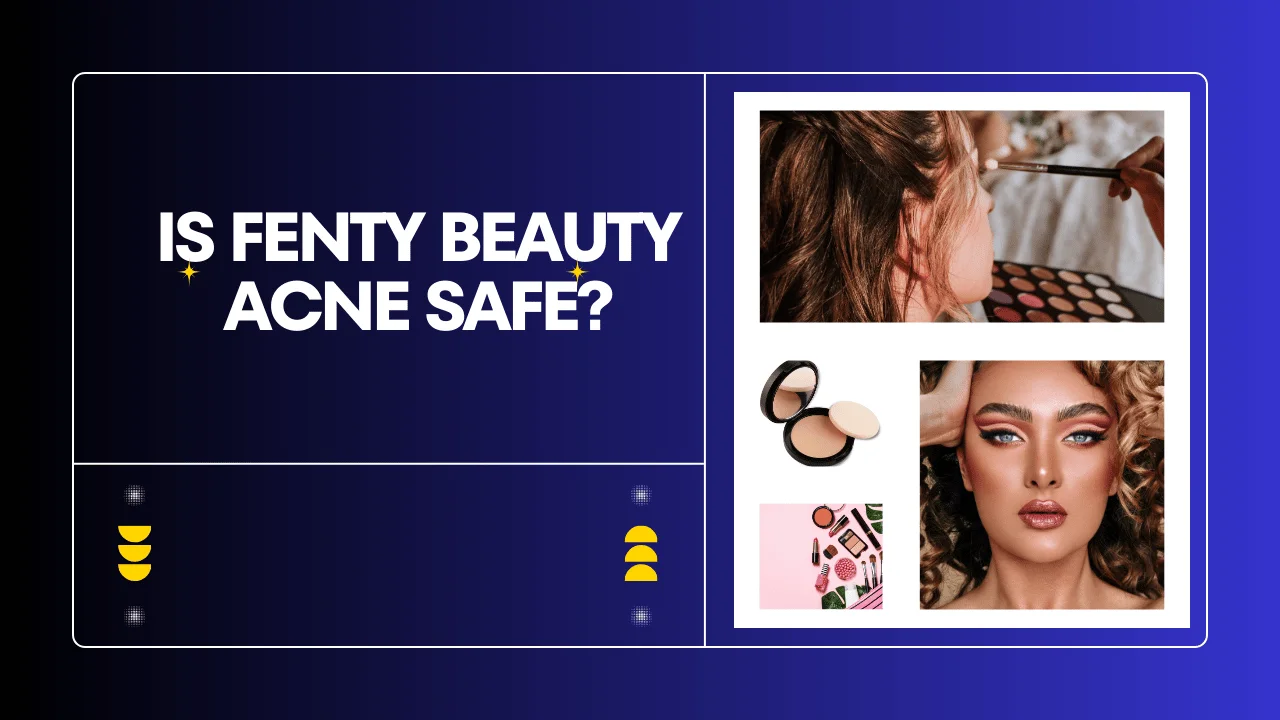The struggle is real. You crave that flawless, full-coverage look, but the fear of a breakout brigade erupting on your face keeps you reaching for concealer instead of foundation.
Enter Fenty Beauty, a brand lauded for its diversity and high-performance formulas. But can this makeup match its inclusivity with true acne-safe options? Here’s the deal: countless individuals with acne-prone skin yearn for makeup that won’t clog pores and trigger breakouts.
Yet, navigating the beauty world with a magnifying glass, scrutinizing every ingredient list, can feel overwhelming. Fear not, fellow beauty warriors! This deep dive will dissect the truth behind Fenty Beauty’s claims. We’ll delve into their ingredient lists, analyze user experiences, and compare them to industry standards.
Buckle up, because we’re about to uncover whether Fenty Beauty lives up to its acne-safe reputation, or if it’s just clever marketing.
Contents
- 1 Defining Acne-Safe
- 2 Fenty Beauty’s Official Stance
- 3 Analyzing Fenty Beauty’s Ingredients
- 4 User Experiences and Testimonials
- 5 Considerations and Limitations
- 6 Conclusion
- 7 FAQ’s
- 7.1 Are all Fenty Beauty products non-comedogenic?
- 7.2 What are the main ingredients in Fenty Beauty products that make them suitable for acne-prone skin?
- 7.3 Can I trust the marketing claims made by Fenty Beauty regarding its non-comedogenic products?
- 7.4 Are there any known ingredients in Fenty Beauty products that could potentially cause breakouts?
- 7.5 How can I determine if a Fenty Beauty product is right for my skin?
- 7.6 Can I use Fenty Beauty products in combination with other acne treatments?
Defining Acne-Safe
In the realm of cosmetics, the term “acne-safe” refers to products that are formulated to minimize the risk of contributing to or aggravating acne breakouts. While there is no definitive standard for acne-safe products, certain characteristics are often considered essential:
- Non-comedogenic formula: A non-comedogenic product is designed to be less likely to clog pores, which is a primary factor in acne development.
- Gentle on sensitive skin: Acne-prone skin is often sensitive, so it’s important that the product is formulated to be gentle and avoid irritating the skin.
- Free from ingredients known to exacerbate acne: Certain ingredients, such as oils, comedogenic waxes, and certain preservatives, can contribute to acne breakouts. Acne-safe products should avoid these ingredients.
By understanding these key criteria, consumers can make more informed choices when selecting cosmetics that are less likely to aggravate their acne-prone skin.
Fenty Beauty’s Official Stance
Fenty Beauty has made significant efforts to cater to a diverse range of skin types, including those with acne-prone skin.
While the brand may not have explicitly labeled all of its products as non-comedogenic, their marketing materials often emphasize the lightweight, breathable texture and seamless blendability of their formulations. These characteristics can be indicative of a product’s suitability for acne-prone skin, as they minimize the risk of clogging pores.
Additionally, Fenty Beauty’s commitment to inclusivity and providing products for all skin tones suggests a dedication to creating formulas that are gentle and suitable for a wide range of individuals, including those with sensitive or acne-prone skin.
However, it’s important to note that individual skin experiences may vary, and it’s always recommended to patch test any new product before applying it to your entire face.
Analyzing Fenty Beauty’s Ingredients
To determine whether Fenty Beauty’s products are truly acne-safe, it’s essential to meticulously examine the specific ingredients listed on the product packaging. While the brand may make claims about its products’ suitability for acne-prone skin, the ingredients themselves play a crucial role in determining their potential to cause breakouts.
By carefully scrutinizing the ingredient list, you can identify any potentially comedogenic ingredients that are known to contribute to clogged pores and acne.
It’s helpful to consult reliable sources and refer to comedogenic ratings of individual ingredients, which assess their likelihood of causing comedones (pimples or blackheads).
While some ingredients may be naturally comedogenic, their role in the overall formulation can also influence their potential to clog pores. For example, an oil-based foundation may be more likely to clog pores than a water-based foundation, even if it contains non-comedogenic oils.
By understanding the interplay of ingredients and their potential comedogenic properties, you can make more informed decisions about whether Fenty Beauty’s products are suitable for your skin.

User Experiences and Testimonials
While Fenty Beauty may make claims about its products’ suitability for acne-prone skin, it’s essential to consider firsthand accounts and consumer reviews to gain a more comprehensive understanding.
Individuals with acne-prone skin can share their personal experiences and provide valuable insights into how Fenty Beauty products have worked for them.
By analyzing online reviews and ratings, you can gauge the general consensus on Fenty Beauty’s suitability for acne-prone skin. Look for patterns and common themes in the feedback provided by consumers.
While individual experiences may vary, these testimonials can offer valuable information and help you make an informed decision about whether Fenty Beauty is a good choice for your skin.
Considerations and Limitations
While Fenty Beauty may be a suitable option for many individuals with acne-prone skin, it’s important to acknowledge that individual skin reactions can vary. What works well for one person may not be ideal for another. Factors such as skin sensitivity, severity of acne, and specific skincare routines can influence how well a product performs.
It’s also essential to consider other factors that can contribute to acne, such as diet, stress, and hormonal changes.
Even the most non-comedogenic makeup products may not be effective if these underlying factors are not addressed. By understanding the complex interplay of factors that can contribute to acne, individuals can make more informed decisions about their skincare routine.
Conclusion
Based on the evidence presented, while Fenty Beauty has not explicitly labeled all of its products as non-comedogenic, the brand’s commitment to inclusivity, its use of lightweight and breathable formulas, and the positive feedback from users suggest that many of its products are suitable for acne-prone skin.
Key points discussed in this article include Fenty Beauty’s official stance, the definition of non-comedogenic, an analysis of the brand’s ingredients, user experiences and testimonials, comparisons with other brands, and considerations for individual skin needs.
However, it’s important to remember that individual skin reactions can vary.
While Fenty Beauty may be a good option for many individuals with acne-prone skin, it’s essential to research other non-comedogenic brands and consult with a dermatologist to determine the best products for your specific skin type and concerns.
By considering these factors and making informed choices, you can find the perfect makeup products to achieve a clear and healthy complexion.
Additional Tips:
- Patch Test: Always patch test new products on a small area of your skin before applying them to your entire face.
- Consult a Dermatologist: If you have severe acne or persistent skin issues, consult with a dermatologist for personalized advice.
- Consider Your Skin Type: Choose products that are specifically formulated for your skin type, whether it’s oily, dry, combination, or sensitive.
- Read Ingredient Labels: Carefully examine the ingredient lists of all products to identify any potential irritants or allergens.
- Listen to Your Skin: Pay attention to how your skin reacts to different products and adjust your routine accordingly.
FAQ’s
Are all Fenty Beauty products non-comedogenic?
While Fenty Beauty has not explicitly labeled all of its products as non-comedogenic, many of their products are formulated to be gentle on the skin and less likely to clog pores. However, it’s important to check the specific product descriptions and ingredient lists to determine the best options for acne-prone skin.
What are the main ingredients in Fenty Beauty products that make them suitable for acne-prone skin?
Fenty Beauty often uses lightweight, breathable formulas that can help minimize oiliness and prevent breakouts. Ingredients like hyaluronic acid, which helps to hydrate the skin without clogging pores, can be beneficial for acne-prone skin.
Can I trust the marketing claims made by Fenty Beauty regarding its non-comedogenic products?
While Fenty Beauty may make claims about its products’ suitability for acne-prone skin, it’s always recommended to do your own research and consider the specific ingredients and user experiences.
Are there any known ingredients in Fenty Beauty products that could potentially cause breakouts?
While Fenty Beauty generally avoids using ingredients known to be highly comedogenic, it’s always a good idea to check the ingredient list of individual products. Some ingredients, such as certain oils or waxes, can be more likely to clog pores.
How can I determine if a Fenty Beauty product is right for my skin?
The best way to determine if a Fenty Beauty product is suitable for your skin is to patch test it on a small area of your face. Pay attention to any signs of irritation, redness, or breakouts. Additionally, consider your skin type and specific concerns to choose the right product for your needs.
Can I use Fenty Beauty products in combination with other acne treatments?
If you have acne-prone skin, it’s best to consult with a dermatologist to determine the best course of treatment. They can advise you on whether Fenty Beauty products can be used in conjunction with other acne medications or treatments.








